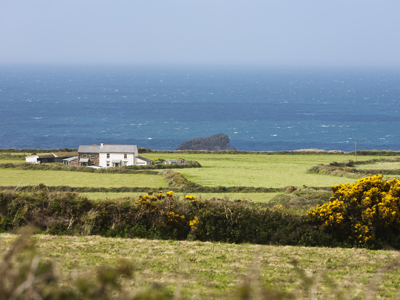Rights and climate collective issues High Court challenge after planning inspector dilutes West Oxfordshire Council’s net zero plans for Salt Cross Garden Village
Rights and climate collective Rights: Community: Action (RCA) has issued a High Court legal challenge to a decision to water down the net zero ambitions of West Oxfordshire District Council in its plan for Salt Cross Garden Village.
Posted on 13 April 2023
The Government’s planning inspectors say the garden village to be built north of the A40, halfway between Witney and Oxford, does not need to be built to the net zero standards suggested by the council.
West Oxfordshire District Council says the village should be fossil fuel-free and 100 per cent of the energy consumption required by buildings should be generated using on-site renewables. It has listed specifications for building fabric, energy efficiency and measures to address risks of overheating.
However the planning inspectors, in a report published in March, question whether the council’s Area Action Plan policies relating to net zero carbon development, zero waste, green infrastructure, and protecting and enhancing environmental assets are justified, effective, and consistent with national and local policy.
The inspectors say the standards demanded by the scheme are significantly higher than those required in the 2013 Building Regulations and conflict with national policy on energy efficiency set out in a 2015 Written Ministerial Statement (WMS), which pre-dated the 2015 General Election and which RCA believes is now out of date.
RCA also say the planning inspectors have misunderstood the 2015 WMS and that West Oxfordshire’s plans for Salt Cross Garden Village do not present a conflict with the WMS or national policy.
RCA point out that the WMS says: “For the specific issue of energy performance, local planning authorities will continue to be able to set and apply policies in their Local Plans which require compliance with energy performance standards that exceed the energy requirements of Building Regulations until commencement of amendments to the Planning and Energy Act 2008 in the Deregulation Bill. This is expected to happen alongside the introduction of zero carbon homes policy in late 2016.”
Despite making these arguments, the zero carbon homes policy was abandoned by the planning inspectors.
RCA say the inspectors were wrong to see the WMS as an expression of national policy without recognising that it has been overtaken by law and policy in the eight years since it was delivered.
The campaigners also say the inspectors’ approach to the question of whether there was a sound evidence base to justify the policy was infected by their misinterpretation of national policy.
Naomi Luhde-Thompson of RCA said:
"The ambitions of local government and local community representatives in this area have been crushed by Inspectors, despite the fact that we are facing a climate crisis. Every decision matters on climate change now, and this is not an outcome anyone wants. It should not be possible for zero carbon development to be turned down in this outdated way"
RCA is represented by Leigh Day planning law specialist, solicitor Ricardo Gama who said:
“There is no point building non-net zero compliant houses now only for them to have to be retrofitted at some future point before 2050. That is why community groups including Rights: Community: Action are baffled by the approach which the government’s inspectors have taken to the Salt Cross Garden Village plan.
“The inspectors’ approach also does not tally with government policy on energy efficiency and is inconsistent with a couple of very recent decisions by inspectors looking at other local plans. The Salt Cross decision therefore sets a confusing precedent, which is the last thing we need given the urgent need to decarbonise energy use in the home.”
Sarah Couch, leader on energy in local climate change group GreenTEA (Transition Eynsham Area) said:
“We have been working extremely hard for zero carbon standards and innovative renewable energy systems for many years. When the garden village was proposed we, along with numerous local residents, strongly supported West Oxfordshire’s aim to make climate change the “golden thread” running through the whole Area Action Plan for what was to be an exemplar development to inspire others. There is mounting evidence of the urgency to act this decade and we know how to do it: it makes no sense to prevent local councils and their communities from requiring standards fit for the enormous climate challenge we all face.”




